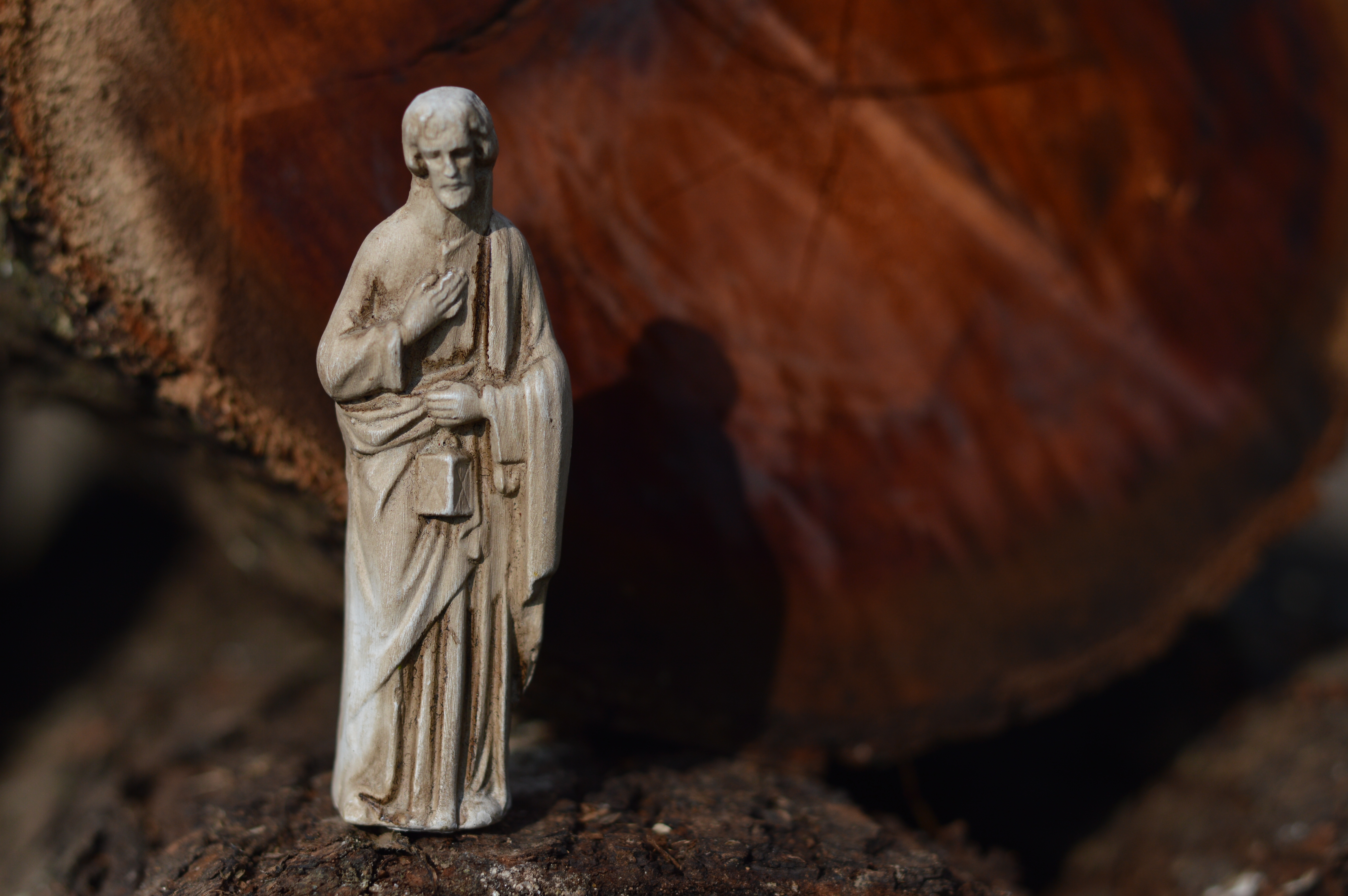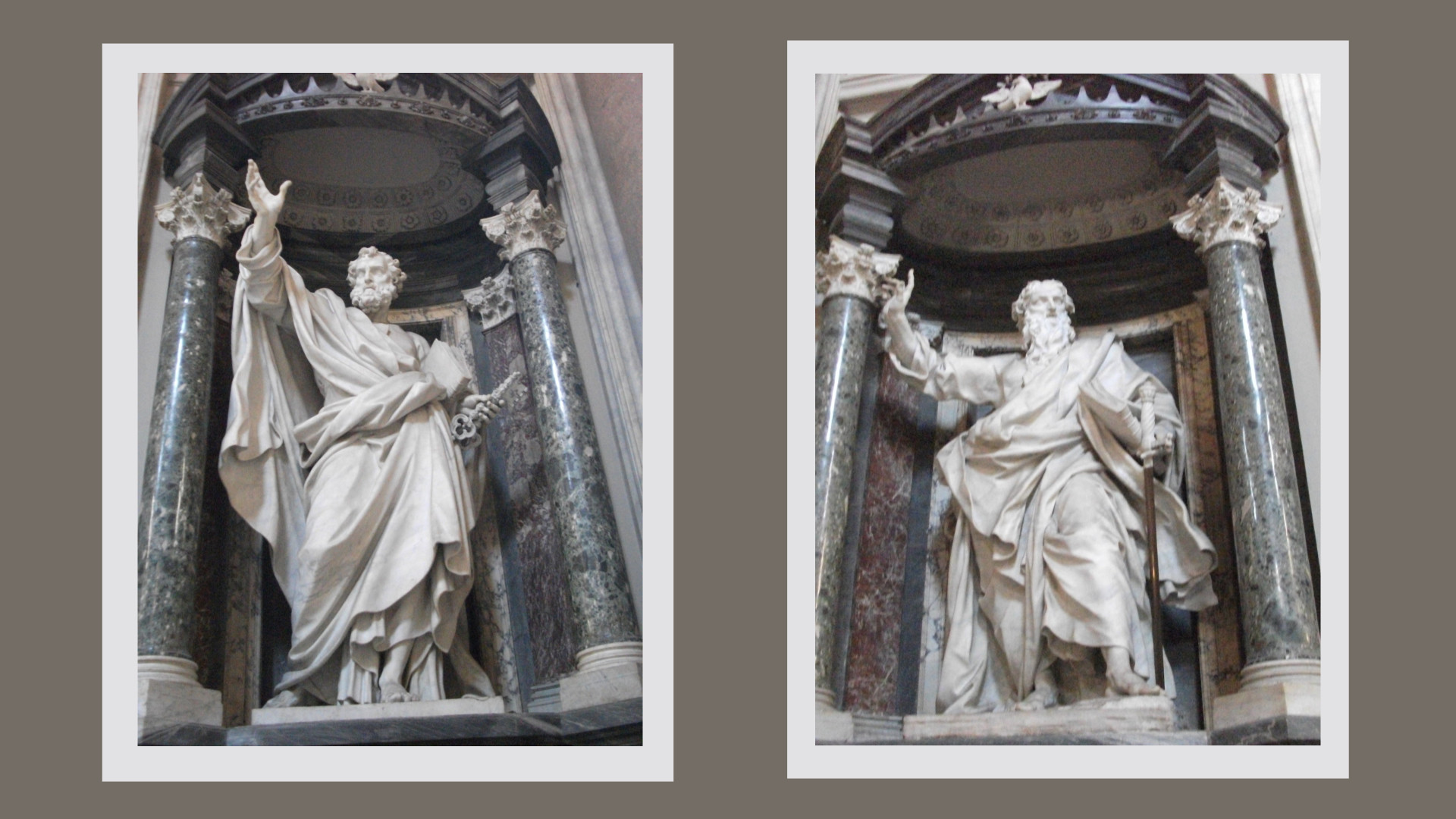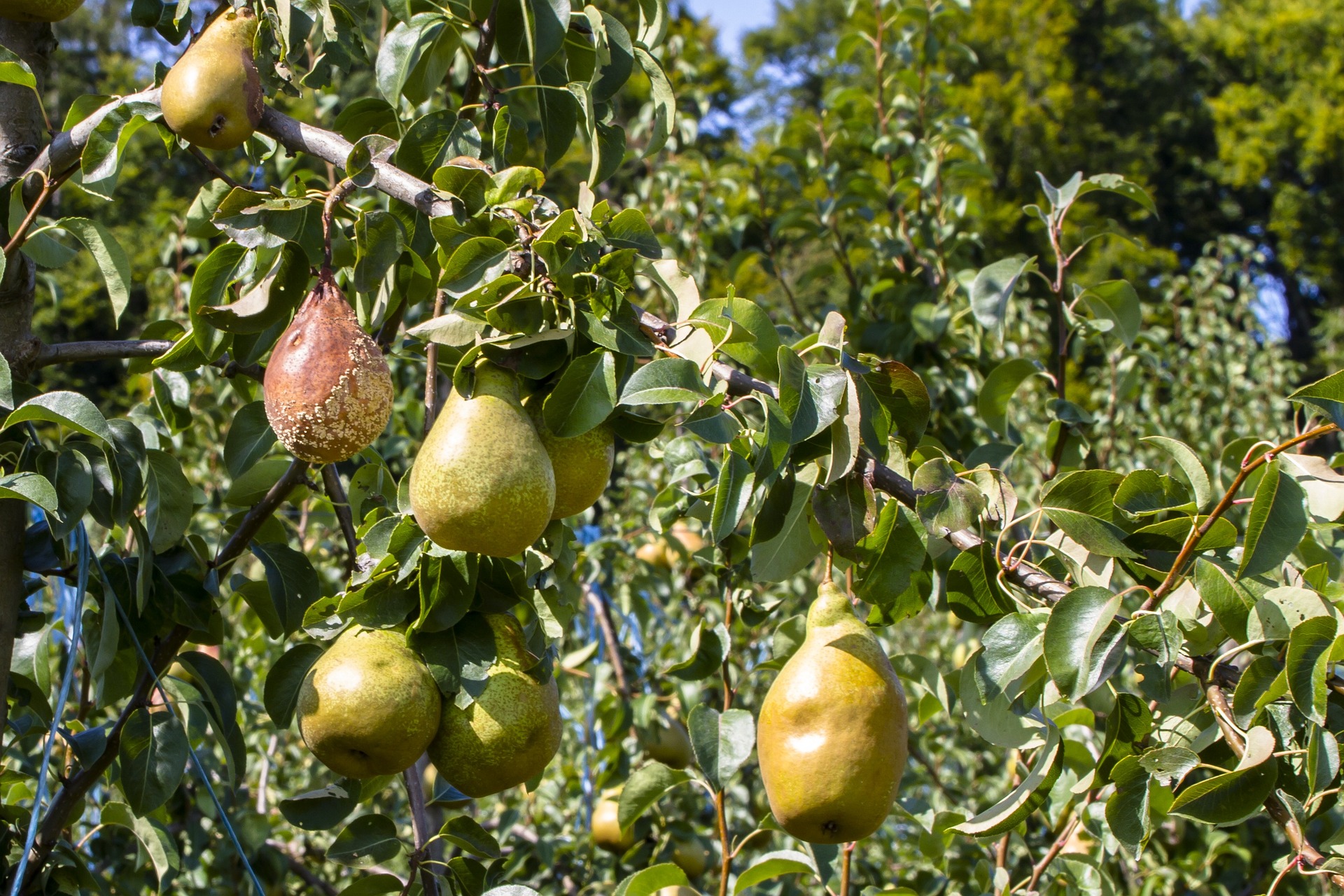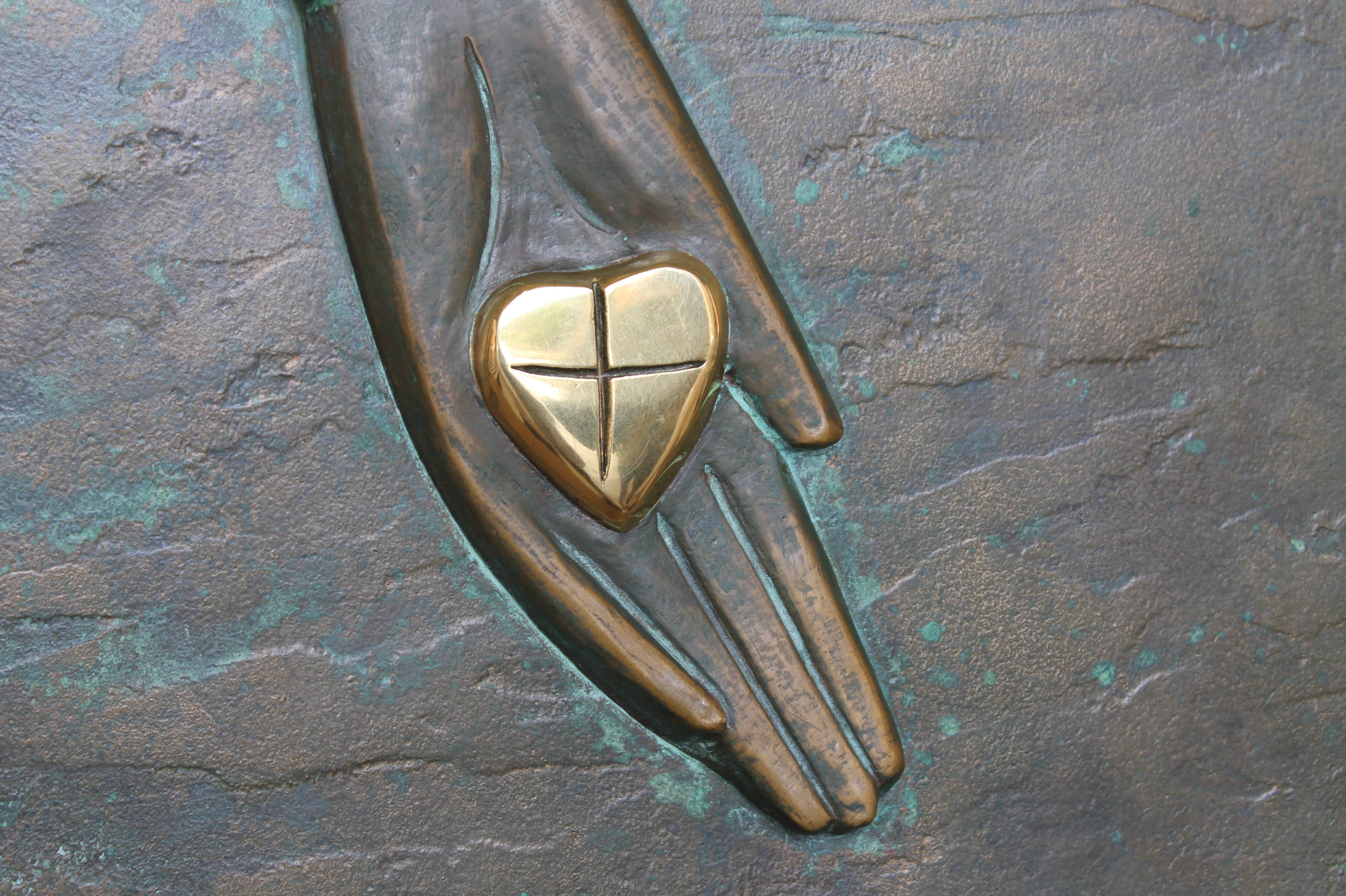For the first 10 years of my education, I was a Centurion. My grade school’s nickname was Centurion. Now, when I was in grade school, I didn’t entirely understand what a centurion was. To me, it was a weird nickname (plus, centurion was really difficult to spell, which is a major problem when you are a cheerleader). Anyways, I always wished my school could have had a different nickname. It didn’t matter what, as long as it was different.
It wasn’t until I got older and became more knowledgeable about the faith that I understood the significance of a centurion. Not just any centurion, though, but one particular centurion, who we hear about in today’s Gospel.
Centurions were military officers who commanded 100 men. They were used to wielding power and authority. They also feared Jesus, thinking that His coming as the Messiah was more about politics and earthly power than mercy and forgiveness and that He was going to overthrow those who had suppressed the Israelites for so long. So it was a major act of faith for the centurion to even approach Jesus.
Notice how the centurion doesn’t even initially ask Jesus to heal his servant, only makes Him aware of the situation. It is only after Jesus states His intentions to come and cure the servant that the centurion makes such a declaration of faith, “Lord, I am not worthy to have you enter under my roof; only say the word and my servant shall be healed.” He believes that the power of Jesus’ words are enough. Not only enough but everything that the servant needs. What a display of faith! Even Jesus is impressed by the centurion’s faith, saying He hasn’t seen that level of faith in Israel.
Now, we say these same words every time we are at Mass, “Lord, I am not worthy that you should enter under my roof but only say the word and my soul shall be healed.” When we say these words, are we really taking them to heart? Do we believe that, by the Word of Jesus, everything will be given to us? Does our faith rise to the level of the centurion’s?
With this Gospel passage in mind, now I look back on my grade school years and say that I am proud to have been a Centurion. And I hope that I can continue to be a centurion in the way I live out and publicly profess my faith.
Durante los primeros 10 años de mi educación, fui una Centurión. El apodo de mi escuela primaria era Centurión aunque cuando estaba estudiando allí no entendía del todo lo que era un centurión. Para mí, era un apodo extraño (además, centurión era muy difícil de deletrear, lo cual es un gran problema cuando eres porrista) y siempre quise que mi escuela tuviera un apodo diferente. No importaba qué, con que era algo diferente.
Recién cuando era un poco mayor y conocía más la fe que entendí mejor el significado de un centurión. Sin embargo, no cualquier centurión, sino un centurión en particular, del que escuchamos en el Evangelio de hoy.
Los centuriones eran oficiales militares que mandaban a 100 hombres. Estaban acostumbrados a ejercer el poder y la autoridad. También temían a Jesús, pensando que Su venida como el Mesías se trataba más de política y poder terrenal que de misericordia y perdón y que iba a derrocar a aquellos que habían reprimido a los israelitas durante tanto tiempo. Así que fue un gran acto de fe para el centurión incluso acercarse a Jesús.
Vemos que el centurión ni siquiera le pide inicialmente a Jesús que sane a su siervo, solo lo hace consciente de la situación. Es solo después de que Jesús declara sus intenciones de venir y curar al siervo que el centurión hace tal declaración de fe: “Señor, no soy digno de que entres en mi casa pero una palabra tuya bastará para sanar a mi siervo.” Él cree que el poder de las palabras de Jesús es suficiente. No solo lo suficiente sino todo lo que el siervo necesita. ¡Qué muestra tan grande de fe! Incluso Jesús está impresionado por la fe del centurión y dice que no ha visto ese nivel de fe en todo Israel.
Ahora, decimos estas mismas palabras cada vez que estamos en Misa: “Señor, no soy digno de que entres en mi casa pero una palabra tuya bastará para sanarme”. Cuando decimos estas palabras, ¿realmente las estamos tomando en serio? ¿Creemos que, por la Palabra de Jesús, todo nos será dado? ¿Se eleva nuestra fe al nivel de la del centurión?
Ahora con este pasaje del Evangelio en mente recuerdo mis años de escuela primaria y digo que estoy orgulloso de haber sido Centurión. Y espero poder seguir siendo una centurión en la forma que vivo y proclamo mi fe públicamente.
 Erin is a Cleveland native and graduate of Franciscan University of Steubenville. She is passionate about the Lord Jesus, all things college sports and telling stories and she is blessed enough to get paid for all three of her passions as a full-time youth minister and a freelance sports writer.
Erin is a Cleveland native and graduate of Franciscan University of Steubenville. She is passionate about the Lord Jesus, all things college sports and telling stories and she is blessed enough to get paid for all three of her passions as a full-time youth minister and a freelance sports writer.
Feature Image Credit: Edgar, unsplash.com/photos/TnhkSNZPXd8


 David Dashiell is a freelance author and editor in Nashville, Tennessee. He has a master’s degree in theology from Franciscan University, and is the editor of the anthology
David Dashiell is a freelance author and editor in Nashville, Tennessee. He has a master’s degree in theology from Franciscan University, and is the editor of the anthology 


 Leslie Sholly is a Catholic, Southern wife and mother of five, living in her hometown, Knoxville, Tennessee. She graduated from Georgetown University with an English major and Theology minor. She blogs at
Leslie Sholly is a Catholic, Southern wife and mother of five, living in her hometown, Knoxville, Tennessee. She graduated from Georgetown University with an English major and Theology minor. She blogs at 
 Deacon Dan Schneider is a retired general manager of industrial distributors. He and his wife Vicki have been married for over 50 years. They are the parents of eight children and thirty grandchildren. He has a degree in Family Life Education from Spring Arbor University. He was ordained a Permanent Deacon in 2002. He has a passion for working with engaged and married couples and his main ministry has been preparing couples for marriage.
Deacon Dan Schneider is a retired general manager of industrial distributors. He and his wife Vicki have been married for over 50 years. They are the parents of eight children and thirty grandchildren. He has a degree in Family Life Education from Spring Arbor University. He was ordained a Permanent Deacon in 2002. He has a passion for working with engaged and married couples and his main ministry has been preparing couples for marriage.
 Dakota lives in Denver, CO with her husband, Ralph, and their two sons, Alfie & Theophilus. She is the Dean of Enrollment Management for Bishop Machebeuf High School where her husband also teaches. You can find Dakota at the zoo or a brewery with her family or with her nose in a book at home. For more of Dakota’s writing check out
Dakota lives in Denver, CO with her husband, Ralph, and their two sons, Alfie & Theophilus. She is the Dean of Enrollment Management for Bishop Machebeuf High School where her husband also teaches. You can find Dakota at the zoo or a brewery with her family or with her nose in a book at home. For more of Dakota’s writing check out 





 Allison Gingras (
Allison Gingras ( 